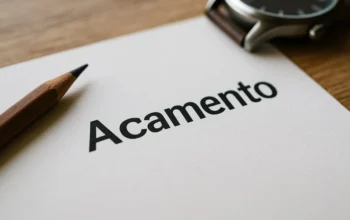
Introduction to Olympus Scanlation
In the digital age, manga and manhwa have become global cultural phenomena. Readers from across the world crave access to Japanese, Korean, and Chinese comics, often before official publishers release licensed translations. This is where scanlation groups, dedicated communities of fans who translate and share manga online, step into the spotlight.
Among these groups, Olympus Scanlation has built a reputation as a notable name within the scene. Known for their dedication to quality, consistency, and variety of projects, Olympus Scanlation represents the bridge between creators and global readers. Understanding their role means understanding the larger dynamics of scanlation, fandom, and the globalization of Asian comics.
The Origins of Olympus Scanlation
Like many scanlation groups, Olympus Scanlation did not begin as a professional company but as a small, passionate community. Emerging in an era where manga readers relied on fan groups to access untranslated series, Olympus formed out of a shared desire to make beloved stories accessible. The choice of the name “Olympus” hints at grandeur, strength, and mythological power, suggesting a team that aimed to stand above others by providing high-quality releases. Over time, they expanded their catalog, gained dedicated followers, and established themselves as a trusted name within online manga circles.
What Is Scanlation and Why Does Olympus Matter?
The word “scanlation” is a fusion of “scan” and “translation.” It describes the process of scanning raw manga pages, cleaning them digitally, translating the dialogue, typesetting the text, and finally releasing the completed chapters online. Olympus Scanlation plays a significant role in this process by maintaining strict quality control and ensuring that translations are as faithful as possible. While some groups prioritize speed over accuracy, Olympus often emphasizes clarity, context, and reader immersion. This approach has helped them build credibility among fans who appreciate both readability and authenticity.
The Workflow of Olympus Scanlation
A typical Olympus Scanlation project undergoes several stages before being released. First, raw manga or manhwa chapters are acquired—sometimes from digital copies, sometimes from physical scans. Then, cleaners remove Japanese, Korean, or Chinese text from the images, touching up artwork and making the pages look polished. Translators step in next, carefully interpreting the text. Since literal translations can sometimes feel awkward, Olympus ensures that the cultural nuances are preserved while making the dialogue natural for English readers.
Finally, typesetters add the translated dialogue into the cleaned pages, mimicking the style and tone of the original. Proofreaders give the final review before the chapter is released to the public. This structured system reflects Olympus’s professional approach, even though the group functions voluntarily.
Genres and Projects Undertaken by Olympus Scanlation
Olympus Scanlation is known for handling a wide variety of genres, ensuring that they cater to different audiences. Their portfolio includes romance, drama, fantasy, action, and slice-of-life series. Many of their projects come from lesser-known authors whose works have not yet been licensed internationally. By focusing on these hidden gems, Olympus helps global readers discover stories that might otherwise remain obscure.
This approach has also made Olympus a favorite among fans looking for something beyond the mainstream titles published officially. Their translations allow smaller series to build international fanbases, which in some cases has encouraged publishers to pick them up for official release.
The Reader Community Around Olympus Scanlation
One of the most remarkable aspects of Olympus Scanlation is the community that has grown around it. Readers often gather on forums, Discord servers, and social media to discuss the latest releases. This sense of community is essential because it transforms the reading experience into a shared cultural activity. Fans eagerly await Olympus’s updates, exchange theories about ongoing series, and even contribute fan art or recommendations for new projects. In many ways, Olympus is not just a scanlation group but a hub for like-minded readers who celebrate their passion for manga and manhwa.
Olympus Scanlation and Its Impact on Accessibility
 For readers living in regions where official manga releases are delayed—or where certain series are never licensed at all Olympus Scanlation serves as a crucial access point. Many fans credit Olympus with allowing them to read stories they might otherwise never encounter. This accessibility is not just about convenience but about cultural exchange. Through Olympus translations, readers learn about Japanese honorifics, Korean traditions, and Chinese storytelling tropes. By providing these cultural bridges, Olympus plays a significant role in fostering cross-cultural appreciation and understanding.
For readers living in regions where official manga releases are delayed—or where certain series are never licensed at all Olympus Scanlation serves as a crucial access point. Many fans credit Olympus with allowing them to read stories they might otherwise never encounter. This accessibility is not just about convenience but about cultural exchange. Through Olympus translations, readers learn about Japanese honorifics, Korean traditions, and Chinese storytelling tropes. By providing these cultural bridges, Olympus plays a significant role in fostering cross-cultural appreciation and understanding.
The Debate Around Legality and Ethics
Of course, the world of scanlations is not without controversy. Since scanlation groups like Olympus translate and distribute works without official permission, they operate in a legal gray area. Critics argue that scanlations can harm the industry by reducing demand for official releases. However, many readers and even some publishers acknowledge that groups like Olympus also create demand for series that might otherwise remain unnoticed.
Fans often buy official copies of series they first discovered through scanlations, and some publishers have admitted that scanlation communities help them gauge international interest. Olympus, like many groups, walks a delicate line between being a cultural contributor and a participant in an unofficial practice.
Olympus Scanlation vs. Other Groups
While there are countless scanlation groups online, Olympus distinguishes itself in several ways. First, its dedication to quality ensures that their releases rarely feel rushed or sloppy. Second, their choice of projects often leans toward unique or niche titles, whereas some groups focus on mainstream hits. Finally, Olympus is known for building strong rapport with its community. Readers often describe Olympus Scanlation as approachable and consistent, with clear communication regarding release schedules and project updates. This transparency has helped them maintain loyal supporters even in a competitive scanlation landscape.
Challenges Faced by Olympus Scanlation
Running a scanlation group is not easy. Olympus faces multiple challenges, including time constraints, resource limitations, and the constant threat of takedown notices. Since members are volunteers, balancing real-life responsibilities with translation work can slow down releases. Additionally, maintaining high-quality standards requires extensive proofreading, which demands significant time and effort.
Another challenge is competition: as more groups rush to translate popular titles, Olympus must carefully choose projects that align with its mission while avoiding redundancy. Despite these hurdles, Olympus continues to adapt and maintain its reputation.
The Role of Technology in Olympus Scanlation
Technological advancements have transformed the way Olympus Scanlation operates. In the early days of scanlation, manual scanning and editing were labor-intensive. Today, digital raws, AI-assisted cleaning tools, and advanced typesetting software allow Olympus to work more efficiently. Even translation has benefited from online dictionaries, community-driven resources, and machine translation tools, though Olympus maintains that human translators are essential for nuance and accuracy. The group’s embrace of modern technology ensures that their work remains competitive while preserving the cultural and artistic essence of each series.
The Relationship Between Olympus and Official Publishers
While Olympus Scanlation is technically unauthorized, the relationship between fan groups and publishers is more complex than it seems. Some publishers actively issue takedown requests, while others quietly observe scanlation activity to identify popular series. Olympus has, in some cases, halted work on projects once they were licensed officially, out of respect for the creators and publishers. This demonstrates a sense of ethical responsibility, even within the scanlation community. For Olympus, the goal is not to undermine official releases but to share stories with fans until publishers step in with authorized versions.
How Olympus Scanlation Influences Manga Culture
Manga culture outside of Japan owes much to scanlation groups like Olympus. They shape reading habits, popularize certain genres, and introduce global audiences to new artistic styles. Olympus in particular has influenced trends by spotlighting romance-heavy dramas, high-concept fantasies, and emotionally complex stories. Many fans attribute their first love of manga or manhwa to Olympus projects. By curating series that reflect diverse themes, Olympus fosters a richer, more inclusive manga culture.
Olympus Scanlation and the Future of Fan Translations
Looking ahead, the future of Olympus Scanlation depends on how the industry evolves. With official publishers increasingly releasing simultaneous English translations, the demand for scanlations may decrease. However, Olympus’s focus on niche, unlicensed titles ensures that it will remain relevant. The group could also adapt by collaborating with indie creators who want their work translated for international audiences. This model of cooperation would blend the fan-driven passion of scanlation with the legitimacy of official partnerships. Olympus’s legacy suggests that it is capable of evolving while staying true to its roots.
The Emotional Connection Between Fans and Olympus
Beyond the practicalities of translation, Olympus Scanlation represents an emotional anchor for many readers. Fans often express gratitude not just for the access to stories but for the sense of belonging that Olympus fosters. For those who feel disconnected from mainstream media, Olympus provides an alternative space where their interests are validated. Every chapter release is more than just a translation—it is an invitation to participate in a global community of readers bound by a shared love for storytelling.
Criticism and Controversies
Like any prominent scanlation group, Olympus has faced its share of criticism. Some readers argue about delays, while others compare Olympus’s translations with other groups and debate over accuracy. On rare occasions, Olympus has had to drop projects due to licensing or internal challenges, which disappoints fans. However, these criticisms are part of the larger scanlation ecosystem, where expectations are high, and competition is fierce. Despite this, Olympus has managed to maintain a generally positive reputation by acknowledging feedback and continuously striving for improvement.
The Legacy of Olympus Scanlation
As time progresses, Olympus Scanlation continues to leave its mark on the fan translation landscape. Its legacy lies not just in the hundreds of chapters released but in the lives it has touched. Readers who discovered their favorite series through Olympus often carry lifelong memories of excitement, community, and discovery. For many, Olympus is synonymous with reliability and quality in a space where inconsistency is common. This enduring legacy cements Olympus as one of the most respected names in scanlation history.
Conclusion: Olympus Scanlation in Perspective
In the broader world of manga and manhwa, Olympus Scanlation occupies a unique position. It is both a fan project and a cultural force, both unofficial and influential. By dedicating countless hours to translating, cleaning, and typesetting, Olympus has given readers the chance to experience worlds that might otherwise remain closed to them. At the same time, it has sparked debates about legality, ethics, and the role of fan communities in media distribution.
Ultimately, Olympus Scanlation represents the passion of fans who refuse to be passive consumers and instead actively contribute to the spread of global storytelling. Its journey is not just about manga—it is about culture, community, and the timeless human desire to share stories across borders.
Also Read: Platform Event Trap


